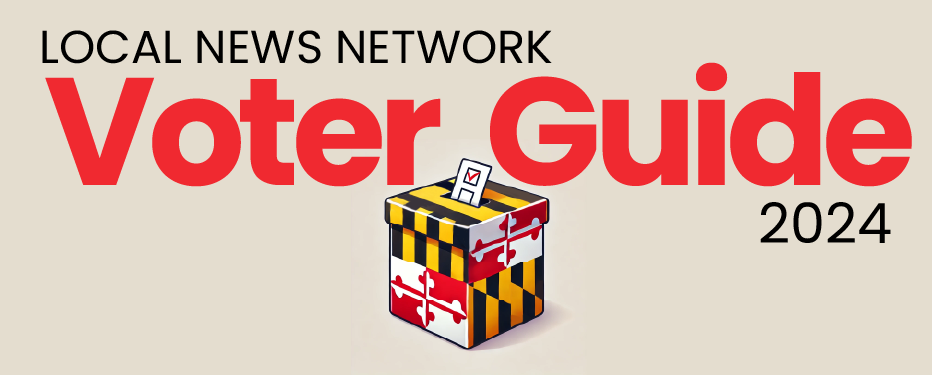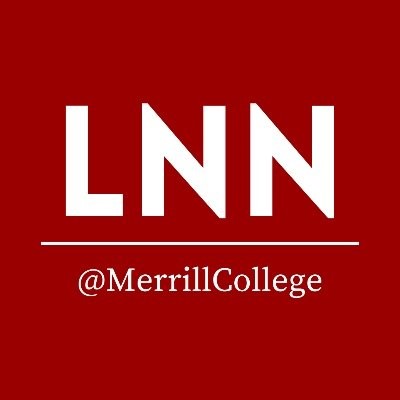Janie Monier
Running for school board in Frederick County
How old will you be on Election Day (Nov. 5)?
47
Are you currently employed? If so, where, and what is your job title?
Self-employed.
What is the highest level of education that you completed, and where did you get that degree?
Bachelor's of science in social science, with a concentration in anthropology from the University of Maryland University College.
Why are you running for the school board?
I am running for school board because as a PTA president, mother of two young boys and a registered nurse I have seen and helped many families navigate the school system to get the best resources needed for their children. I have worked with families and teachers to recover our school culture after COVID shut so many families inside and disconnected students and parents from their communities. I have worked with teachers and support staff to increase the outreach to families who are struggling, to families that feel alone in the unique struggles they are having with their children, and to share resources, time and compassion. Our public schools need to be safe places of learning and challenge that teach all the necessary academics, but also teach students how to respect and value the differences we each bring to the table and to expect the same respect in return. There are some who would have all schools adhere to the values of a few while forcing the rest to be silent. This does not prepare our students to be adults in a diverse and ever-changing world.
What makes you a good candidate for the board?
I have a diverse array of experiences from my professional to personal life that have all intersected with education in one way or another. Both of my parents were disabled and each were presented with very different opportunities for academic achievement. These differences had a profound impact on their futures. As their only child I was often the caretaker and translator for one or both of my parents. There is perseverance and resilience that comes from challenge. From retail management, business owner, archeologist, veterinary technician, to registered nurse I have had to revisit school to increase certifications or take extra classes as industries are always changing. And as a nurse in Baltimore City and through COVID I have had many patients whose lives were irrevocably changed by the obstacles that met them in early childhood. As a nurse, a mother and as a daughter, I understand that in education, as in health care, success rests on understanding the whole child. Meeting them where they are and setting them up for a life they can not only follow, but lead.
What is the most important issue facing your school board and what would you do about it if elected?
Currently, our enrollment growth has outpaced the county's ability to construct new schools and renovate our aging infrastructure. In order to tackle the problems in special education, classroom sizes, mental and behavioral health, and teachers and staff; we must first have classrooms for the children to learn in. This requires working with state legislators to change the funding formula to better reflect the county's huge increase in population. We must increase our outreach to parents and communities s they can better understand when and how their community schools are being built and renovated. We will have to be innovative in how we approach retain and attracting new teachers. Programs that target local high school graduates who plan to go into education programs with scholarships so they come back to Frederick County Public Schools to teach. Cast a wider net into programs with higher diversity, including socioeconomic background and disability. Make sure that our local elected leaders and business community are constantly reminded about the issues of affordability that our employees have and their role in helping us tackle that problem. Whether that is through grants or changing the mix of development to better include our school staff. Solving the problem of school construction and staffing will lead to much better options to resolve our issues with providing necessary resources for special education students, appropriate reintegration for students struggling with behavioral issues, and ensuring that our students, teachers and staff have a safe environment for learning.
Please name a public leader you admire and explain why.
Yitzhak Rabin. When I was younger I would follow him and Yasser Arafat in their speeches to their people and meetings with one another. Rabin was a man raised to fight and dislike Palestinians. Yet, he came to the conclusion that every conflict was leading to more bloodshed and there could be no peace under those circumstances. Peace seems impossible to people who have never known peace themselves. Watching Rabin and Yasser Arafat go against their personal history to sign the Oslo Accords and see that peace between their people was more important than any political race or the drumbeat of revenge was very profound. Just as it was profound that Rabin was subsequently assassinated by an Israeli extremist. And now with the Oslo Accords shattered and war persistent in its cry over the cries of peace, who knows when we will see another moment like we did with Rabin and Arafat.
The Blueprint for Maryland’s Future, passed by the General Assembly in 2021, is a 10-year plan that includes increased education funding to support early childhood education, increased teacher starting pay, college/career-readiness standards for high school graduates, and expanded services to multilingual and impoverished families, among other goals. Please tell us your views on the Blueprint and how it will affect your school district.
The Blueprint for Maryland's Future is a plan of many lofty goals written before COVID and the shifting economic realities afterwards. It is incomplete in attaining its goals without creating flexibility for changes in a local education agency that makes them an outlier to the rest of the state and in not addressing the importance of our educators and staff. The many mandates under the Blueprint could be strengthened with acknowledging that each of our counties is unique in its demographics, socioeconomics, geography and needs. All of which are not addressed when the funding formula for its mandates focuses only on the wealth of its residents, but not its enrollment patterns, its infrastructure challenges and affordability for school teachers and staff to live and work in the same county. These variables have converged to make meeting the goals of the Blueprint very difficult. The Blueprint also does not address how an arts education impacts the education for all students. Athletics and extracurriculars to build the skills they need to be productive members of a workforce. And how our standardized test are not accurately reflecting if the skills they are learning can also be applied. Without the correct application of their skills in math, writing and arithmetic then our students have really learned very little that sets them up for success as adults.
Some school districts nationwide are placing new limits on the use of cellphones in middle and high schools. What do you think should be the policy on student use of cellphones in your district, and why do you support that policy?
By looking at the current research on the use of personal mobile devices by developmental age I would prohibit their use in our schools. While it would be great to have a more nuanced policy for our high school students, the reality is that the policy we currently have is not enforced the same district-wide. To stay consistent with our families, students, teachers, and staff I would encourage that we prohibit their use on school campus. They are more likely to be used to distraction and to bully or harass another student when they are allowed on campus.
Are you satisfied with your school district's efforts to ensure the safety of its students? What, if anything, should be done to improve school safety in your district?
There is a need to increase student and teacher safety in our schools. Teachers and staff are under-resourced to deal with student outbursts that lead the destruction of property, physical harm and derogatory language. Instead of the offending student facing the consequences, the rest of the class must leave the room. This is not safe for anyone, including the child that is acting out and clearly needs an intervention. This has been cited by many teachers and staff as another reason why they are leaving the system. We need to encourage our teachers and support staff to report incidents as they happen and seek care instead of shouldering the pain because they do not want to cause further conflict. Understaffing and overcrowding has led to so many incidents that could have been avoided with the right staffing and student supports in place.
Do you think there are circumstances when books should be removed from school libraries? If so, what kind of books should be removed, and who should make those decisions?
Books in a school library should be grade appropriate and have educational value. The only time they should be removed is when they do not meet the criteria for books in our school library as noted in our policy. Our school librarians are subject matter experts in childhood literature and development. If a parent believes something to be inappropriate, there is a policy and system to address concerns. In 2023, 35 books were presented for removal and a committee was formed of parents, community members and teachers to address those concerns. Two books were removed and one was taken out for not having any educational value. It is important we hire the experts in their field, allow them to do their job and support them with policies that address parents’ concerns without putting the librarian in the middle of that conflict.
Some school districts enact policies allowing transgender and gender nonconforming students to use their preferred pronouns while at the same time not informing those students' parents about that decision. What is your opinion of such policies?
A teacher's day is filled with many mandated activities that do not include their lesson planning, assessing or even classroom instruction. They have degrees in education, not social work, pastoral care or counseling. Beyond establishing relationships with a student that make teaching and learning more efficient, teachers do not need to be getting between students and their families. They are mandatory reporters if they see bruises or other evidence of abuse. Teachers need to be left to teach the academics and families can teach their values and beliefs to their children accordingly. Students say many things one day and the opposite the next. Public schools are for the public and should not teach to one belief system or set of values over another except those of the United States Constitution.


